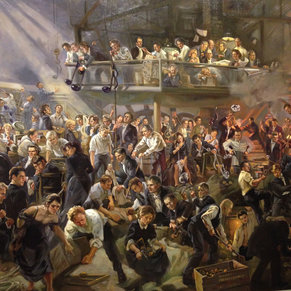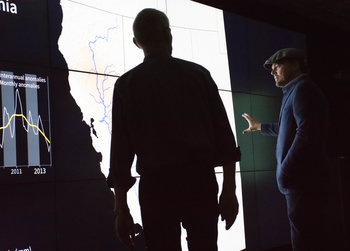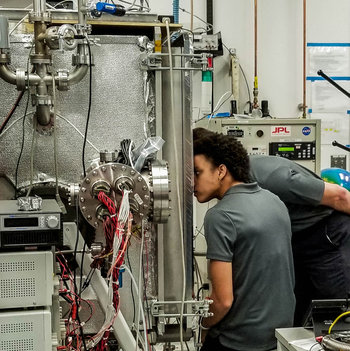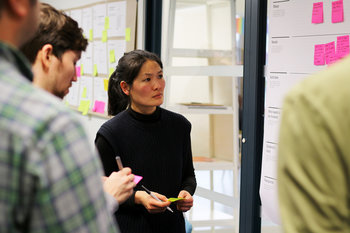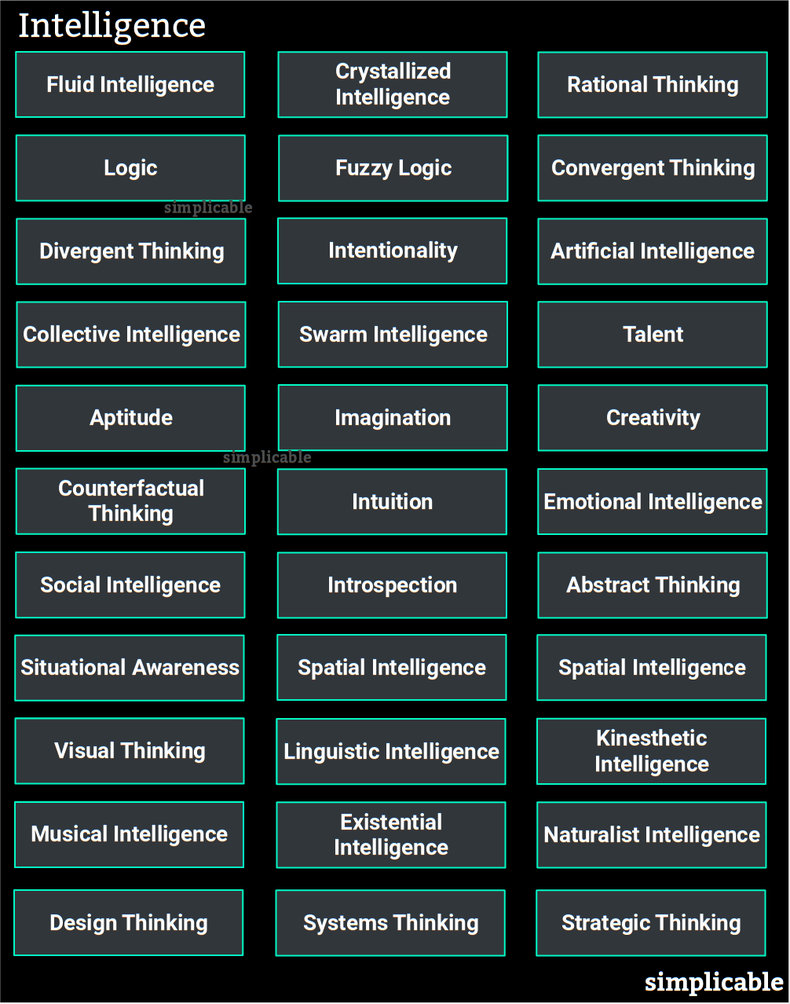
Fluid Intelligence
Fluid intelligence is the ability to adapt to new situations where you have no background knowledge or experience.Crystallized Intelligence
The ability to apply your knowledge and experience in an intelligent way.Rational Thinking
Rational thinking is the ability to think in ways that other intelligent beings might deem reasonable. For example, the ability to come up with a theory or argument that other people view as insightful.Logic
Logic is a class of formal systems that can be used to validate or generate rational thought. Classic logic suffers from a problem known as excluded middle whereby it can't consider grey areas.Fuzzy Logic
A class of modern logic that uses probability theory to handle grey areas.Convergent Thinking
Convergent thinking is the ability to come up with the correct answer to a problem with a well known solution. For example, the ability to solve a logic problem. IQ tests measure convergent thinking.Divergent Thinking
The ability to handle problems that have no correct answer such as a strategy, design, social interaction or artistic creation.Intentionality
Intentionality is the ability to act in a directed way with a sense of purpose.Artificial Intelligence
Artificial intelligence is a class of systems that seek to automatically mimic rational thought.Collective Intelligence
Attempts to create intelligent outcomes as groups such as a society, organization or team. Generally more challenging that being intelligent as an individual as group decisions often reflect a series of political compromises.Swarm Intelligence
Intelligence that emerges from the independent behavior of many actors. For example, a stock market that finds a realistic price for stocks based on the complex behavior of millions of investors.Talent
Talent is an ability to create value in a domain. For example, a teacher who can explain something well and inspire students.Aptitude
Aptitude is the potential to become talented. For example, a piano student who has progressed extremely far for their age.Imagination
The ability to think in ways that differ from concrete reality.Creativity
Creativity is the ability to create non-obvious value.Counterfactual Thinking
Counterfactual thinking is the process of thinking about how the past could have been different.Intuition
Thoughts or feelings that originate with the subconscious such that you are unaware how they were formed.Emotional Intelligence
Emotional intelligence is the ability to read, use and express emotion. Emotions are mental states that color all thoughts.Social Intelligence
The ability to thrive in a complex society where things like language, culture and norms apply to every interaction.Introspection
Introspection is the ability to examine your own thoughts, emotion and character to self-improve.Self-Awareness
Making progress with introspection such that you know who you are, who you are not and where you are going.Situational Awareness
The ability to quickly understand and respond to fast moving situations. For example, a snowboarder who can respond to being sideswiped by a skier going 90 mph in a socially acceptable and safe way.Spatial Intelligence
The ability to perceive, process and visualize 3d space in your mind. For example, an ability to realistically model in your head how your existing furniture would fit into the rooms of a new apartment.Abstract Thinking
Abstract thinking is the ability to think in concepts that differ from reality that are nonetheless useful in explaining it. This is a basic human ability as most language is conceptual. For example, freedom doesn't exist as a concrete reality but certainly exists to humans because they think in abstraction.Visual Thinking
Visual thinking is the ability to think and communicate in pictures.Linguistic Intelligence
A talent for language such as a good public speaker or writer.Kinesthetic Intelligence
The ability to use your body well such as an athlete with a talent for a sport.Musical Intelligence
A talent for music.Existential Intelligence
Existential intelligence is an ability to think about deep intractable questions in areas such as philosophy, physics and ethics.Naturalist Intelligence
A talent for enjoying nature, understanding nature and developing value from it. For example, a gardener with a knack for making hard-to-grow plants thrive.Design Thinking
The ability to create new value and to solve problems with design. For example, a city planner who is able to improve quality of life in a city with redesigned streets such as play streets.Systems Thinking
Systems thinking is the ability to think through the end-to-end impacts of change to complex systems. For example, a CEO who knows how to move an entire organization with deep structural and cultural problems towards an ambitious goal.Strategic Thinking
Strategic thinking is the ability to achieve objectives and goals in an environment of constraints and competition.| Overview: Intelligence Examples | ||
Type | ||
Definition | The ability to understand, create and use ideas. | |
Related Concepts | ||






